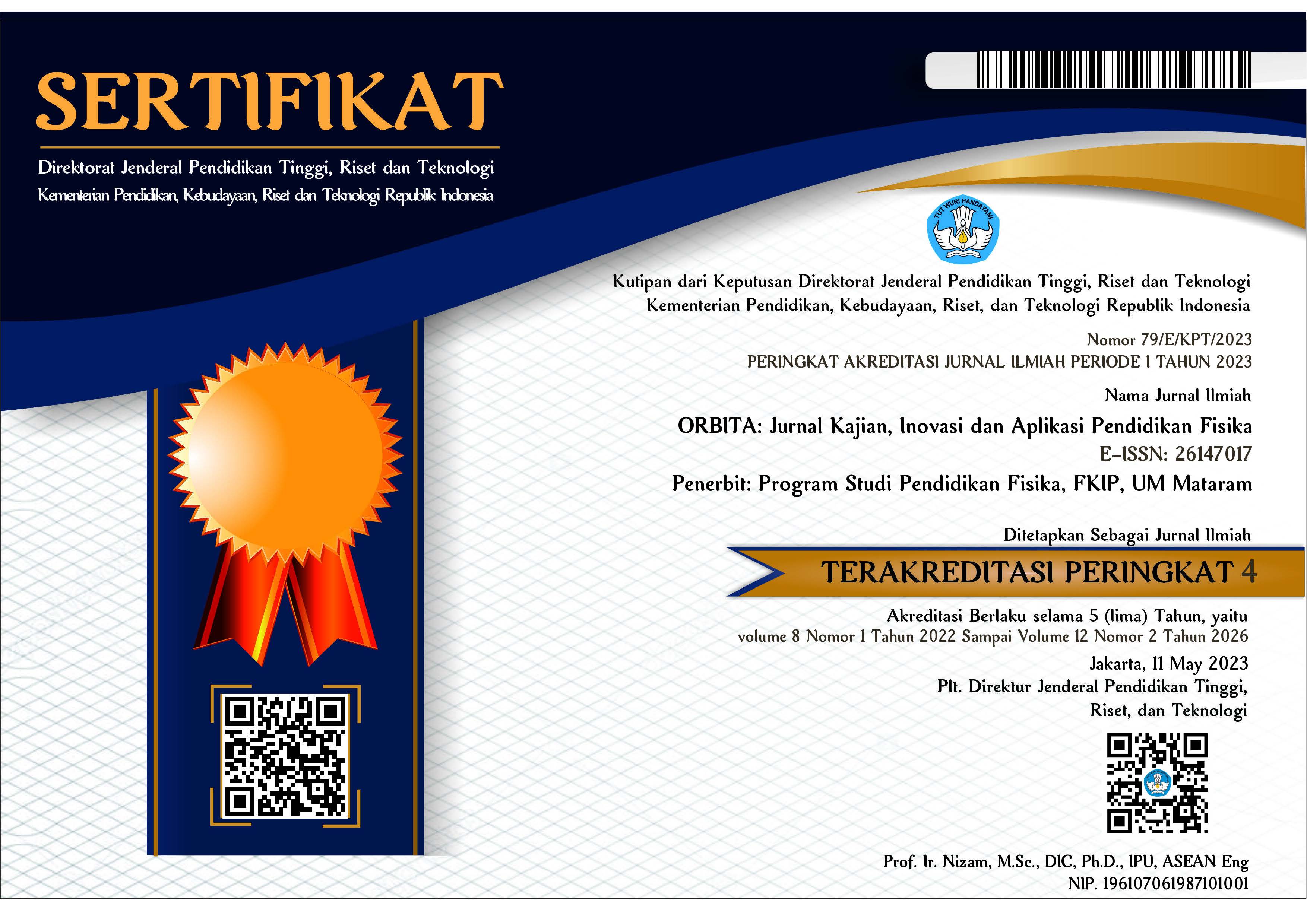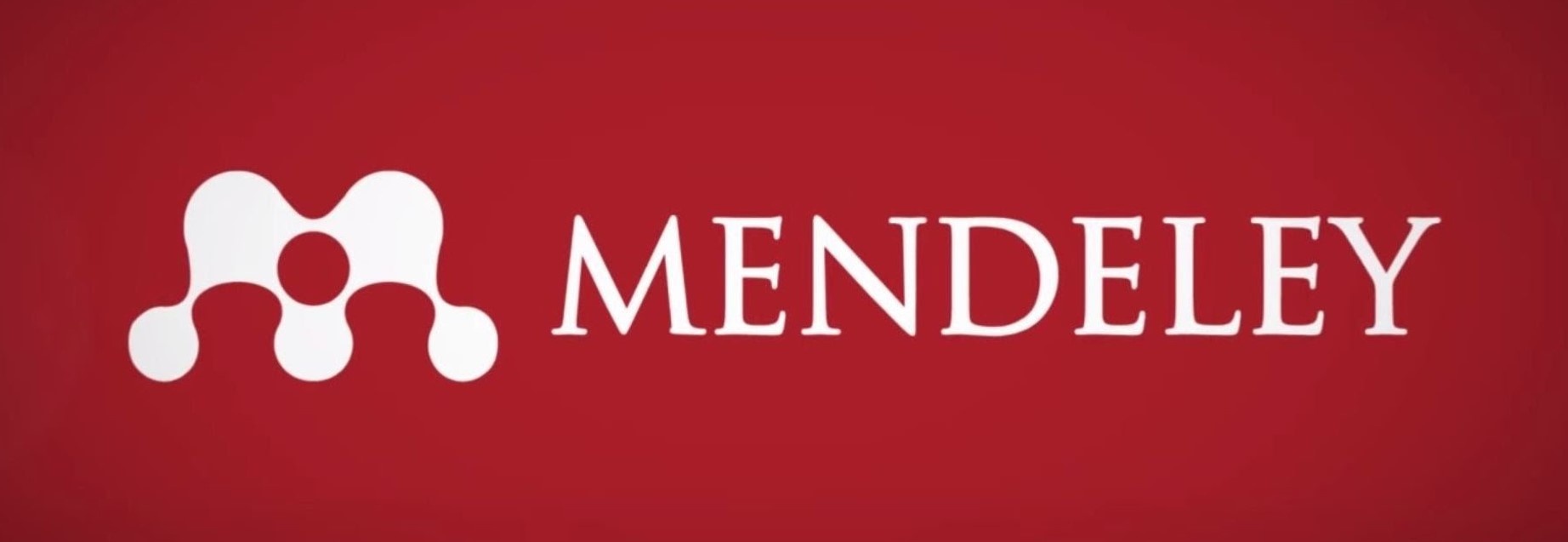PENERAPAN MODEL PROBLEM BASED LEARNING DALAM MENINGKATKAN PENGUASAAN KONSEP SISWA PADA MATERI TEKANAN HIDROSTATIS
Abstract
ABSTRAK
Masalah utama yang mendasari penelitian ini adalah rendahnya penguasaan konsep siswa terhadap materi Tekanan Hidrostatik, yang menunjukkan adanya kebutuhan untuk memperbaiki metode pembelajaran yang ada. Tujuan penelitian ini adalah untuk mengetahui peningkatan penguasaan konsep siswa pada materi tekanan hidrostatis setelah diajarkan dengan model problem based learning di SMK Darul Wustha Jerowaru. Penelitian ini dilakukan pada semester Genap tahun pelajaran 2022/2023. Metode penelitian yang digunakan adalah mixed methods desain embedded experimental model. Subjek dalam penelitian ini berjumlah 28 siswa kelas X SMK Darul Wustha Jerowaru. Instrumen penelitian terdiri dari silabus, RPP, LKS, tes penguasaan konsep, lembar observasi keterlaksanaan pembelajaran, dan protokol wawancara. Pengumpulan data yang digunakan meliputi test, observasi, dan wawancara. Teknik analisis data kuantitatif meliputi N-Gain, uji t berpasangan, dan effect size untuk melihat besar pengaruh pembelajaran. Sementara data kualitatif dianalisis dengan data reduction, coding, data display, conclusion drawing/verivication. Hasil penelitian menunjukkan bahwa: (1) Penguasaan konsep siswa pada materi tekanan hidrostatis melalui pembelajaran model problem based learning mengalami peningkatan yang signifikan dengan N-Gain skor rata-rata sebesar 0,69 (kategori sedang), dan nilai effect size sebesar 6,2 (kategori kuat); (2) sebagian besar siswa dapat mengubah konsepsi-konsepsinya yang salah pada saat posttest. Pada materi tekanan hidrostatis sebagian besar siswa menganggap tekanan hidrostatis dipengaruhi oleh volume air dan bentuk bejana, namun pada saat postest sebagian besar siswa mampu mengubah konsepsinya menuju konsepsi yang sesuai dengan konsep tekanan hidrostatis yaitu tekanan hidrostatis dipengaruhi oleh massa jenis dan kedalaman. Kondisi ini menunjukkan bahwa model problem based learning dapat meningkatkan penguasaan konsep siswa pada materi tekanan hidrostatis.
Kata Kunci: penguasaan konsep; problem based learning; tekanan hidrostatis.
ABSTRACT
The main problem underlying this research is the low mastery of students' concepts in the topic of Hydrostatic Pressure, indicating a need to improve existing teaching methods. The aim of this research is to determine the improvement in students' concept mastery in the topic of hydrostatic pressure after being taught using the problem-based learning model at Darul Wustha Vocational School Jerowaru. This research was conducted in the second semester of the 2022/2023 academic year. The research method used is a mixed methods design with an embedded experimental model. The subjects in this study consisted of 28 students from class X at Darul Wustha Vocational School Jerowaru. Research instruments included syllabi, lesson plans, worksheets, concept mastery tests, learning implementation observation sheets, and interview protocols. Data collection methods included tests, observations, and interviews. Quantitative data analysis techniques included N-Gain, paired t-tests, and effect size to assess the magnitude of the learning effect. Meanwhile, qualitative data were analyzed through data reduction, coding, data display, and conclusion drawing/verification. The research results indicate that: (1) Students' mastery of the concept of hydrostatic pressure through problem-based learning showed a significant improvement, with an average N-Gain score of 0.69 (moderate category) and an effect size value of 6.2 (strong category); (2) Most students were able to correct their misconceptions during the post-test. In the topic of hydrostatic pressure, most students initially believed that hydrostatic pressure was influenced by the volume of water and the shape of the container. However, after the post-test, most students were able to adjust their concepts to align with the concept of hydrostatic pressure, which is influenced by density and depth. This condition demonstrates that the problem-based learning model can enhance students' concept mastery in the topic of hydrostatic pressure.
Keywords : concept mastery; problem based learning; hydrostatic pressure
Keywords
Full Text:
PDFReferences
Alik, I. P., Paramata, D. D., & Supartin, S. (2023). Analisis Kepraktisan Perangkat Pembelajaran Model Discovery Learning Berbantuan Media Ispring Suite pada Materi Fluida Statis. Jurnal Pendidikan MIPA, 13(1), 46–53.
Arends, R. I. (2012). Learning to teach. McGraw-Hill Companies.
Chen, Y., Irving, P. W., & Sayre, E. C. (2013). Epistemic game for answer making in learning about hydrostatics. Physical Review Special Topics-Physics Education Research, 9(1), 010108.
Cohen, L., Manion, L., & Morrison, K. (2007). Research Methods in Education, vol. 6 Routledge. London and New York.
Eggen, P., & Kauchak, D. (2012). Strategi dan model pembelajaran. Jakarta: Indeks.
Erinosho, S. Y. (2013). How do students perceive the difficulty of physics in secondary school? An exploratory study in Nigeria. International Journal for Cross-Disciplinary Subjects in Education, 3(3), 1510–1515.
Etherington, M. B. (2011). Investigative primary science: A problem-based learning approach. Australian Journal of Teacher Education (Online), 36(9), 53–74.
Goszewski, M., Moyer, A., Bazan, Z., & Wagner, D. J. (2013). Exploring student difficulties with pressure in a fluid. Aip Conference Proceedings, 1513(1), 154–157.
Hake, R. R. (1998). Interactive-engagement versus traditional methods: A six-thousand-student survey of mechanics test data for introductory physics courses. American Journal of Physics, 66(1), 64–74.
Kaya, E. (2013). Argumentation Practices in Classroom: Pre-service teachers’ conceptual understanding of chemical equilibrium. International Journal of Science Education, 35(7), 1139–1158.
Kua, M. Y., Maing, C. M., Tabun, Y. F., Jibril, A., Setiawan, J., Heriyanto, L., Suparmi, N. W., Rismaningsih, F., & Dolo, F. X. (2021). Teori dan Aplikasi Fisika Dasar. Yayasan Penerbit Muhammad Zaini.
Li, Y., Ali, K., Ahmad, S., Ahmad, S., Jamshed, W., Abd-Elmonem, A., Amjad, A., & El Din, S. M. (2023). Micro-structured fluid within a channel under static and oscillatory pressure gradients: A novel Darcy-Forchheimer flow investigation. Engineering Science and Technology, an International Journal, 47, 101544.
Morgan, C., Colombres, M., Nuñez, M. T., & Inestrosa, N. C. (2004). Structure and function of amyloid in Alzheimer’s disease. Progress in Neurobiology, 74(6), 323–349.
Ornek, F., Robinson, W. R., & Haugan, M. P. (2008). What Makes Physics Difficult?. International Journal of Environmental and Science Education, 3(1), 30–34.
Potturi, G., Singhchaudary, K. B., Agarwal, A., & Rastogi, N. (2016). A comparative study on the efficacy of PBL problem based learning and ABL activity based learning in perceiving anatomy among physiotherapy students. International Journal of Physiotherapy and Research, 4(3), 1479–1483.
Putra, R. A., Sudargo, F., Redjeki, S., & Adianto, A. (2014). The analysis of concepts mastery and critical thinking skills on invertebrate zoology course. International Journal of Science and Research, 3(3), 498–502.
Salim, A., & Taib, S. (2018). Fisika Dasar 1. Deepublish.
Shishigu, A., Hailu, A., & Anibo, Z. (2017). Problem-based learning and conceptual understanding of college female students in physics. Eurasia Journal of Mathematics, Science and Technology Education, 14(1), 145–154.
Sofiuddin, M. B., Kusairi, S., & Sutopo, S. (2018). Analisis penguasaan konsep siswa pada materi fluida statis. Jurnal Pendidikan: Teori, Penelitian, Dan Pengembangan, 3(7), 955–961.
Tasoğlu, A. K., & Bakaç, M. (2014). The effect of problem based learning approach on conceptual understanding in teaching of magnetism topics. International Journal of Physics and Chemistry Education, 6(2), 110–122.
Yadaeni, A., & Kusairi, S. (2016). Studi kesulitan siswa dalam menguasai konsep fluida statis. Pros. Semnas Pend. IPA Pascasarjana UM, 1, 59–65.
Yadaeni, A., Kusairi, S., & Parno, P. (2018). Penguasaan konsep dan keterampilan proses sains siswa kelas XII pada materi fluida statis. Jurnal Pendidikan: Teori, Penelitian, Dan Pengembangan, 3(3), 357–364.
DOI: https://doi.org/10.31764/orbita.v9i2.19290
Refbacks
- There are currently no refbacks.

This work is licensed under a Creative Commons Attribution-ShareAlike 4.0 International License.
______________________________________________________
ORBITA: Jurnal Pendidikan dan Ilmu Fisika
p-ISSN 2460-9587 || e-ISSN 2614-7017
This work is licensed under a Creative Commons Attribution-ShareAlike 4.0 International License.
EDITORIAL OFFICE:


























